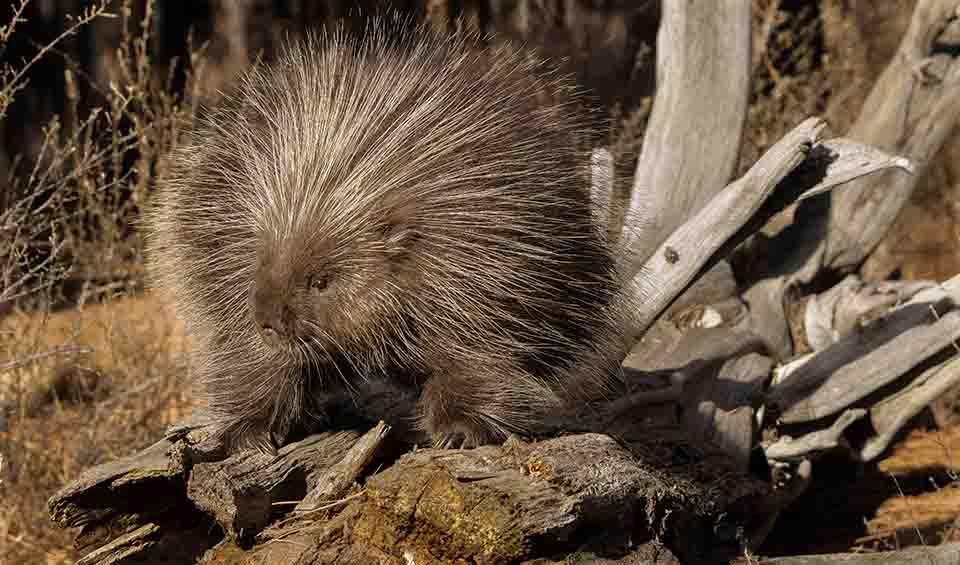Covered in up to 30,000 sharp quills, this slow-moving, tree-climbing rodent looks like a walking pincushion — but it’s actually a pretty gentle soul. Found across forests, tundras, and deserts in North America, this porcupine is perfectly built for a life of peaceful wandering. Its most famous feature, the quills, act like a natural suit of armor. When threatened, it doesn’t throw its quills like people sometimes think — instead, the quills easily detach and stick to anything that brushes against them, helping the porcupine escape while its attacker is left, quite literally, picking up the pieces.
Despite their armored appearance, North American porcupines are surprisingly good at other things too. They are excellent climbers, spending a lot of time high up in trees, especially in the winter when snow covers the ground. They use their strong curved claws and rough-textured paws to grip branches securely. Up there, they snack on bark, twigs, and evergreen needles — not exactly a gourmet diet, but it gets them through the cold months. On top of that, these porcupines are actually good swimmers! Their hollow quills help them stay buoyant, so crossing rivers or ponds isn’t a big deal when they’re searching for food or territory.
Another cool thing about North American porcupines is their teeth — their front teeth are bright orange! That’s because of a special iron coating that makes them super strong for gnawing on tough wood. They also have a funny way of communicating: during mating season, they grunt, moan, and whine in a way that’s surprisingly dramatic for such a quiet animal most of the year. Although they mostly live alone, porcupines have been known to share dens in the winter for extra warmth, proving that even prickly personalities sometimes need a friend.
Distribution
 Canada
Canada Mexico
Mexico United States
United StatesAnything we've missed?
Help us improve this page by suggesting edits. Glory never dies!
Suggest an editGet to know me
Terrestrial / Aquatic
Altricial / Precocial
Polygamous / Monogamous
Dimorphic (size) / Monomorphic
Active: Diurnal / Nocturnal
Social behavior: Solitary / Pack / Herd
Diet: Carnivore / Herbivore / Omnivore / Piscivorous / Insectivore
Migratory: Yes / No
Domesticated: Yes / No
Dangerous: Yes / No




